Most rental property is managed by the property owner (landlord). As the old saying goes, you don’t know what you don’t know. It is apparent, however, that most landlords do not know a lot about the laws and rules on filing a proper eviction. Here are some real-life examples of errors that are common in landlord’s eviction complaints (names are redacted). Note: these are just a sampling of evictions filed within a 3-day period in Escambia County, Florida.
EVICTION COMPLAINT NOT FILED BY AN ATTORNEY
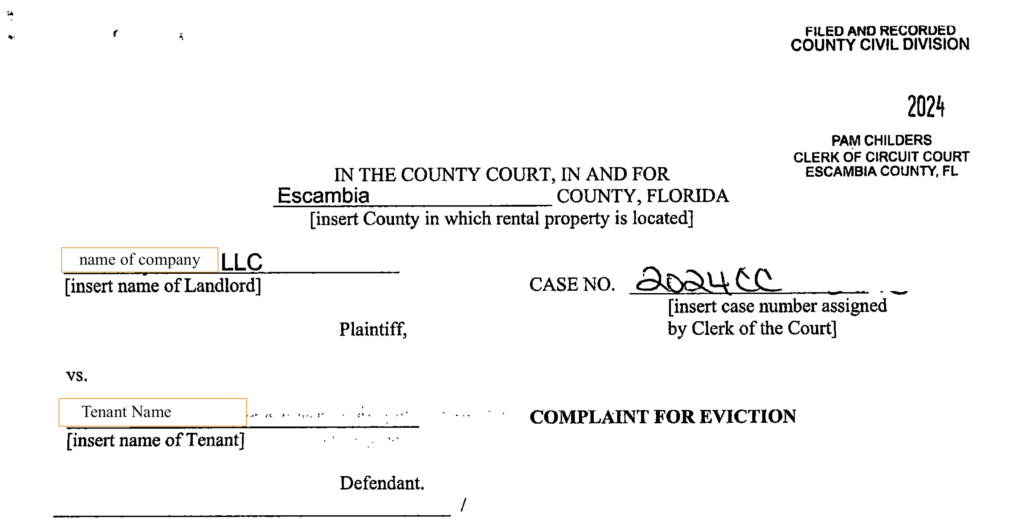
In this eviction, the landlord is a company, but the landlord did not file the eviction through an attorney. Florida law is clear: a company landlord cannot file its own eviction; it must have an attorney to file. If this tenant files an answer, the court will not permit the company landlord to proceed without an attorney representing it in the eviction action.
INCOMPLETE TENANT NAME
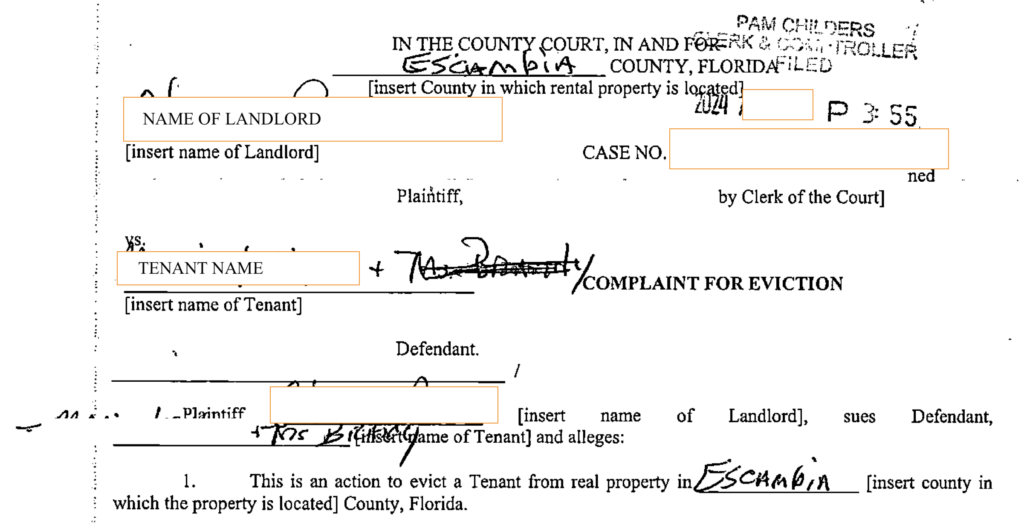
In this eviction, the landlord named a tenant but did not include the tenant’s full name. Not naming the tenant correctly in the eviction complaint may cause several problems, including: defective summons and inability to execute a writ of possession without properly identifying the party. The eviction complaint and notices that form the basis of the eviction must name all tenants on the lease or that agreed in a verbal tenancy. If there is an “unknown tenant”, the landlord must name the unknown tenant as such pursuant to the Florida Rules of Civil Procedure, though one would think that a landlord would know the name of a tenant that he entered into an agreement with.
INCOMPLETE 3 DAY NOTICE TO PAY
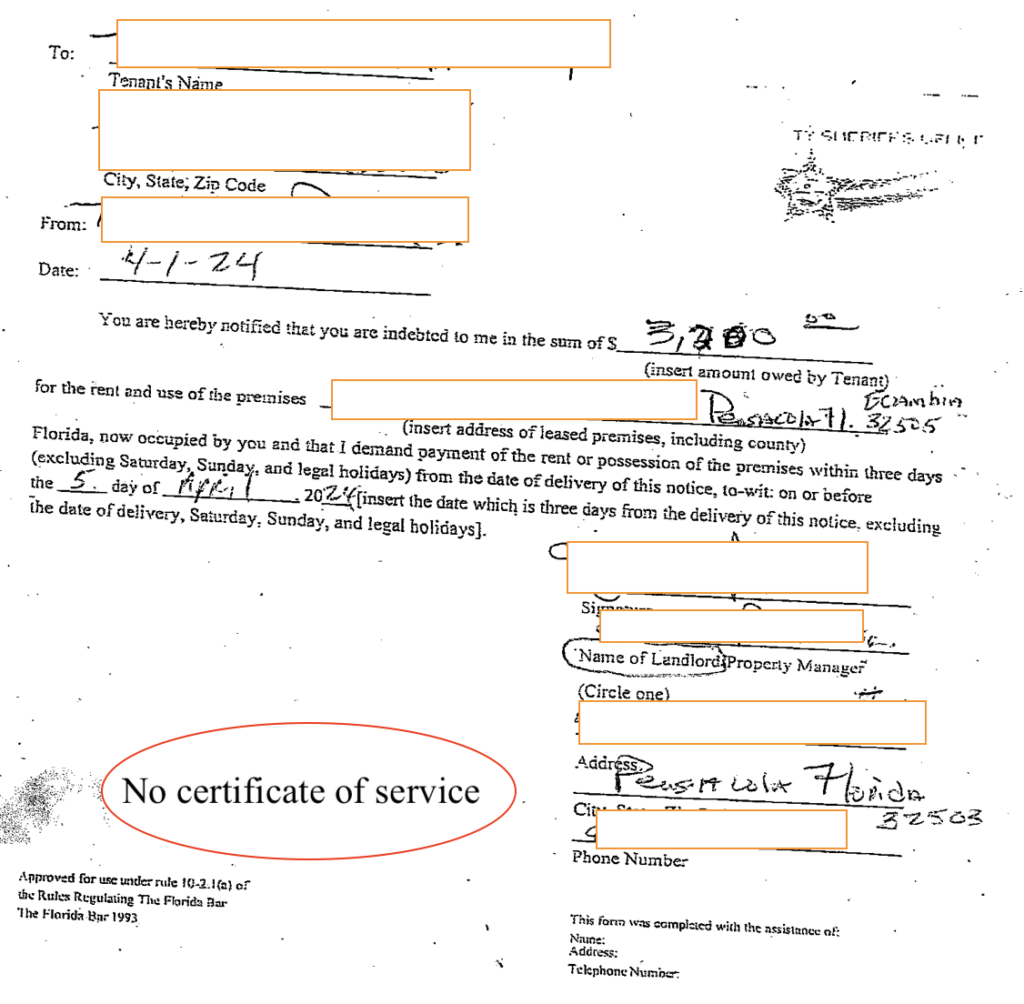
As a basis for this eviction, the landlord filed as an exhibit a 3 day notice to pay, but the notice did not include a certificate of service, that is, the method and date of delivery. Without a certificate of service, the notice is defective, and the court can find in favor of the tenant and dismiss the eviction based on a defective notice.
DEFECTIVE 7 DAY NOTICE TO TERMINATE (NON-CURABLE VIOLATION)
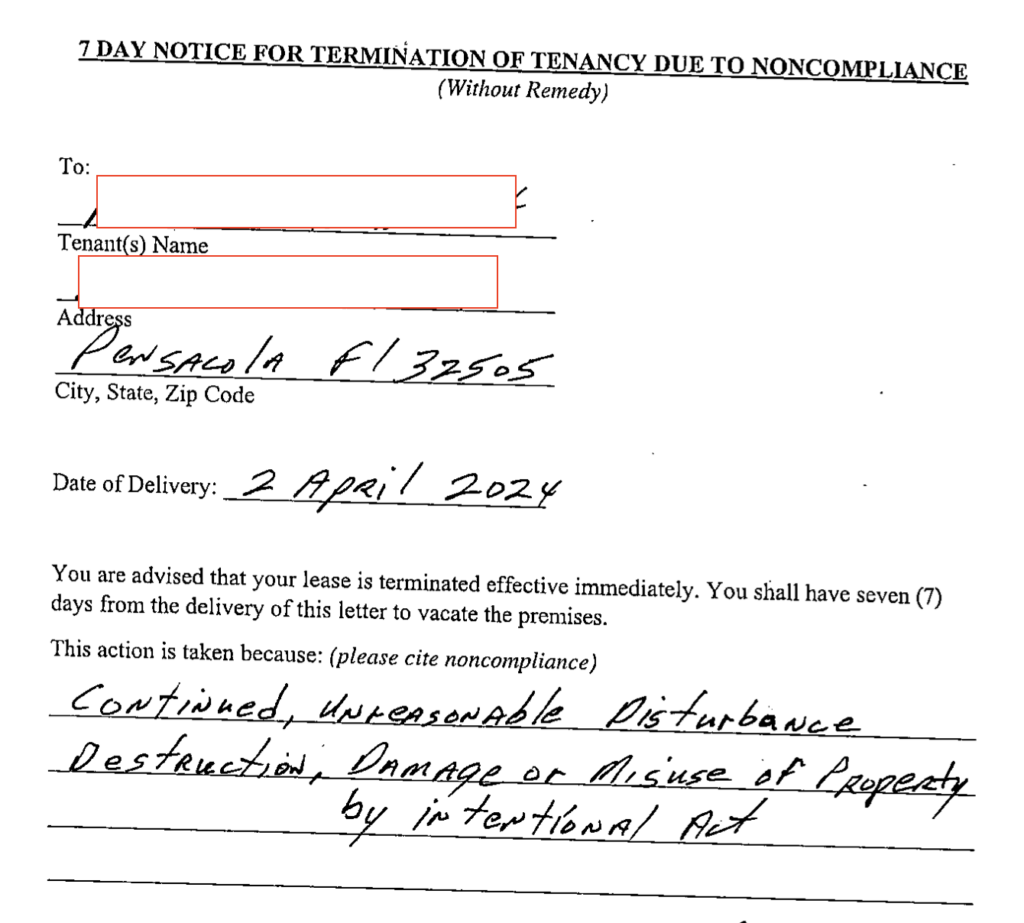
As a basis for this eviction, the landlord filed as an exhibit a 7 day notice to terminate based on a non-curable violation. In Florida, the landlord must be specific as to the violations that form a basis for eviction, including the lease or statutory provision violated and the “who, what, when and where” details of the violation. This notice is lacks any specifics as to the lease or statutory provision that was violated and the facts that form the basis of the violation; and as such, the court will likely find that the notice is defective, thereby dismissing the eviction.
DEFECTIVE 30 DAY NOTICE TO TERMINATE MONTH-TO-MONTH
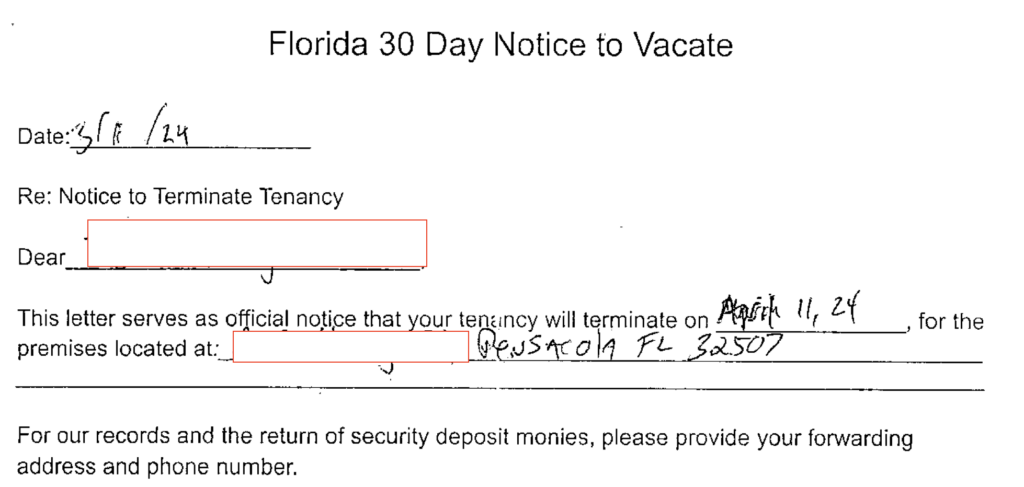
As a basis for this eviction, the landlord filed as an exhibit a 30 day notice to terminate a month-to-month tenancy. Assuming rent is due on the first of the month (the eviction complaint doesn’t allege when rent is owed), this notice is defective because the notice must be delivered at least 30 days prior to the end of the monthly period. When rent is due on the first, the “end of the monthly period” is the day before the first. The landlord here delivered the notice on 3/11/24 and terminated on 4/11/24, which is not correct if rent is owed on the first day of the month.
DEFECTIVE 3 DAY NOTICE TO PAY OR VACATE
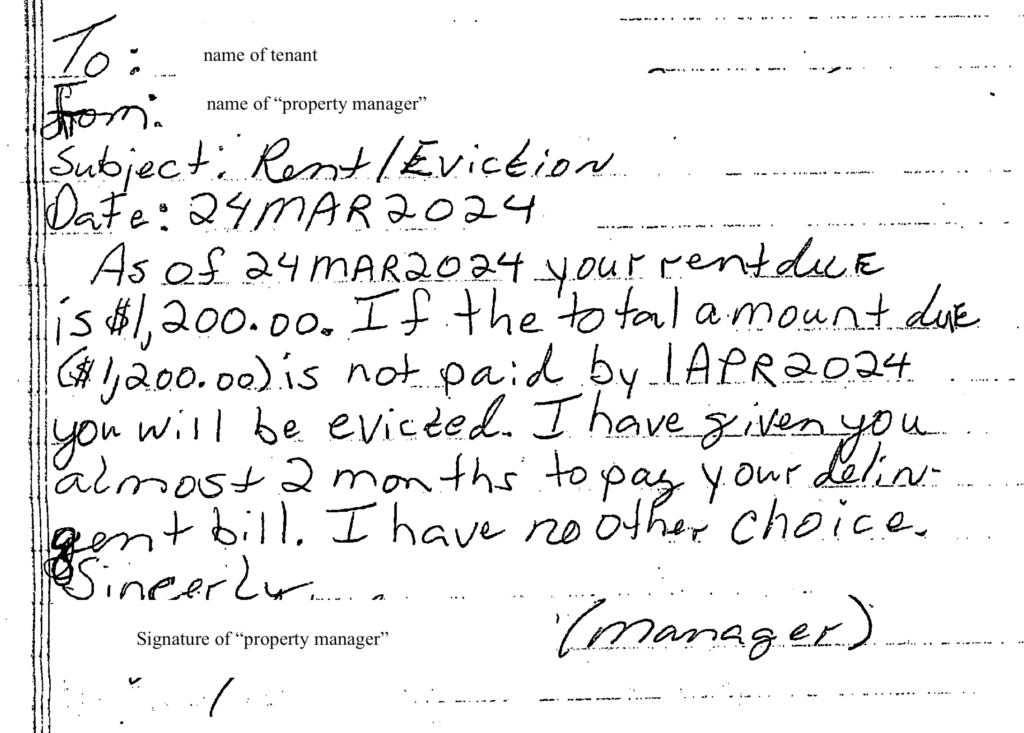
This property manager filed an eviction on behalf of the landlord and attached a “3 day notice to pay”, but this notice is clearly defective. First, a property manager must use either the 3 day notice form approved by the Florida Supreme Court or prepared by an attorney for the landlord. In addition, the property manager’s notice is defective as it does not contain the required statutory language in F.S. 83.56(3). If this tenant defends on the action, the court will find that the notice is defective and dismiss this eviction.
CONCLUSION
If you are a landlord of residential rental property and you want your eviction handled properly, hire an expert law firm. At Property Management Law Solutions, LLC, we specialize in residential landlord-tenant and property management matters and have since 2006. Contact us today for a consultation about your landlord-tenant matter or subscribe to one of our Membership plans to help improve your rental business.
Property Management Law Solutions, LLC is a Florida law firm that specializes in landlord-tenant law and is a landlord-only law firm. We provide statewide services including evictions, consultation plans, education and training, membership plans, forms library, lease agreement plans and more. If you are a landlord or property manager, contact us today or subscribe to one of our online membership plans.
